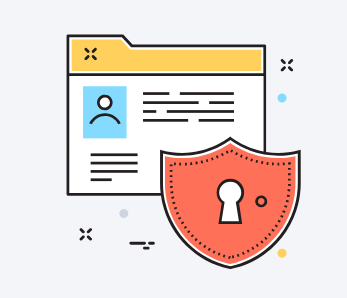- November 20, 2024
Cyber attacks have risen as many Americans have begun working from home amid COVID-19 “stay at home” orders. While working remotely, keep yourself (cyber) safe with these 5 tips.
1) Secure your home network.
Did you ever change the default admin password on your home wifi router? Can’t remember? Maybe it’s time to update it now. Keep your home network secure by creating a unique, long password. If you’re unsure how to change your password, call your internet provider or check their website!
2) Be aware of phishy messages.
Phishing messages have increased as we work from home. Recent “phish” have been found in the forms of: calls from IT, emails with links for package delivery, and messages from friends or colleagues. Even messages that appear to be from the CDC and WHO are showing up in inboxes.
Our motto here at PrairieView is “Check the source before you endorse!” Meaning, go directly to the source of the message to see if it is legit.
Never click a link in an email that you think might be a scam or give personal information via email. Login directly from the source’s website, call the customer support line, or call your colleague/friend/family member directly if something phishy came from them. Most importantly, stay alert!
3) Create strong passwords.
Now is the time to change that password you’ve had since high school. Now is the time to create a different password for each of your logins. Now is the time to use a password manager!
Keep your accounts secure by creating strong passwords and using multi-factor authentication when possible. Longer is stronger. The more characters your password contains, the more difficult it becomes to hack.
You can even use a sequence of words as a passphrase, such as: logic finite eager ratio. Passphrases can be easier to remember and just as secure as a randomly generated password (and definitely more secure than password123).
Your brain has more important things to remember than the password to your favorite restaurant’s online ordering site. Keep out the brain clutter by using a password manager. Check out this article and this article to learn more and find out which manager might work best for you.
4) Keep work equipment separate
Not everyone has a home office separate from the rest of the house. Working from home can mean setting up shop on the kitchen table, taking over a couch in the sunroom, or occupying a desk in the corner of your bedroom.
Regardless of your home setup, take steps to keep it secure. Where possible, keep your work equipment separate from personal, and limit access to those devices by family members.
Lock your computer screen to secure private information when you’re not there. Make it easy by setting up auto log off so your computer will automatically log off after a set period of inactivity.
If you have a home printer, be aware of what you are printing to it. If it is sensitive information and you don’t need to print it, don’t. Wait until you’re back in the office on a secure work printer.
5) Keep your systems updated
Just because your system was secure at one point doesn’t mean it still is now. Developers are constantly coming out with new updates to fix bugs in the system and keep it safe. Ensure that you are current on all of your software updates. Make it easy and enable automatic updating, when possible!
This tip applies to not just your work technology, but all home technology that connects to the internet. Think TVs, baby monitors, security cameras, gaming consoles, and even your car!
Keeping you, your family, and your work cybersecure can seem daunting. Taking action now, even if only on one of the items above, can go a long way to ensuring hackers don’t gain access to your information.
You are not alone in this. There are many resources available to help you stay secure. The SANS Institute and StaySafeOnline are just two resources to help. And as always, we’re here to help in any capacity that we can.
Stay (cyber) safe!





